Iran’s Rial Drops To Low Point Over Protests, Doubts On Nuclear Deal
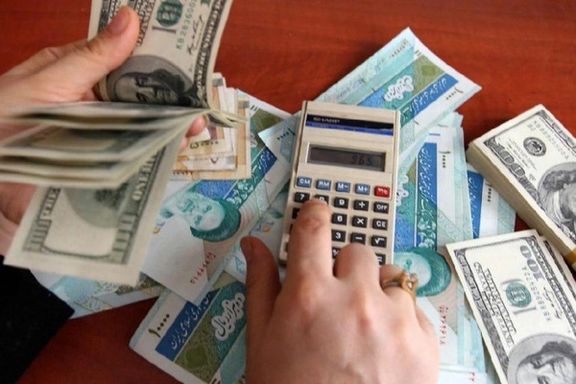
Iran’s rial has dropped to its lowest point since June when it registered an all-time low against other currencies. The rial is close to breaking that record.

Iran’s rial has dropped to its lowest point since June when it registered an all-time low against other currencies. The rial is close to breaking that record.
On Monday, Iran’s battered currency was trading at 332,000 against one US dollar amid pessimism over a nuclear deal with the United States and nationwide antigovernment protests.
The rial, which has dropped tenfold in the past five years, has proven to be sensitive to news about the nuclear talks. It began a steep fall in early 2018 when it appeared that former US president Donald Trump intended to withdraw from the Obama-era nuclear accord known as the JCPOA. After Trump announced his decision in May 2018 and imposed economic sanctions on Iran, the rial fell more drastically, and annual inflation rose to more than 40 percent.
Negotiations to revive the JCPOA have stalled after 18 months of indirect talks between Tehran and Washington, with no immediate prospect of a resumption.
In the absence of a deal, Iran’s crude oil exports remain sanctioned by the US and its banking system isolated from the international financial system.
Before the 1970 revolution that toppled the monarchy, the US dollar was worth 70 rials. The current exchange rate represents an almost 5000-fold drop in 43 years.
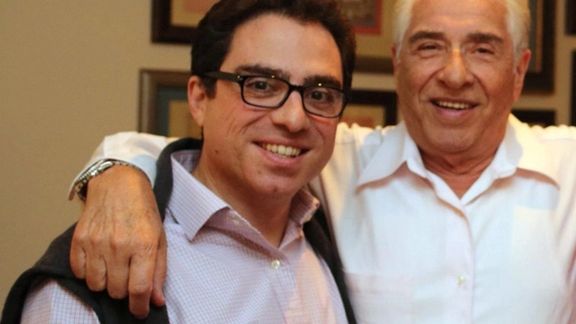
Iran’s official government news agency confirmed Sunday that Tehran will receive $7 billion of its frozen funds for a prisoner exchange deal with the United States.
IRNA confirmed on Sunday that a prisoner swap deal has been finalized between Tehran and Washington, according to which Iran’s blocked money in South Korea well be released. The report, however, did not mention the name of the Iranian(s) who are supposed to be freed.
On Saturday, reports said that an Iranian-American hostage, Siamak Namazi was released from Tehran’s Evin prison in a one-week renewable furlough. Namazi has spent 7 years in jail on Trumped-up espionage charges. His father Baquer Namazi who went to Iran to free his son in 2016 was also arrested and accused of espionage, but later freed from prison on medical grounds and now has been allowed to leave Iran.
United Nations spokesperson Stephane Dujarric announced about Namazis in a statement on Saturday.
Iran's Nour news said Saturday that the deal is the result of intensive negotiations in recent weeks with the mediation of a regional country regarding the simultaneous release of Iranian and American prisoners. Iran had earlier claimed that the $7 billion would be freed in exchange for the release of three American dual citizens.
Nuclear negotiations since April 2021 between Tehran and Washington are stalled, and a prisoner deal could be a positive signal for a resolution, but Washington has not confirmed the Iranian claims.

Iranian dissident figure Mir-Hossein Mousavi has expressed support for the current protests across Iran, calling on the military to stand behind the nation.
Mousavi, who has been under house arrest since February 2011 as one of the leaders of the protests in 2009-2011 known as the Green Movement, issued a statement Saturday addressing the military forces, "I hope you will be able to stand on the side of the truth, on the side of the nation."
"No one has the right to stand in front of the nation as a blind agent," he said.
Mousavi (Musavi), 81, was Iran’s Prime Minister from 1981 to 1989. He was a candidate in the disputed presidential election in 2009 and challenged the results leading large protests for months before he was arrested and put under house arrest without a trial. His wife Zahra Rahnavard and another candidate Mehdi Karroubi suffered a similar fate as all three were accused of “sedition” against the regime. He was put under house arrest after he and his wife urged their supporters to organize demonstrations in support of uprisings in the Arab world in February 2011.
His statement has been met with conflicting responses from Iranians -- who have been holding daily demonstrations across the country since mid-September, when 22-year-old Mahsa Amini was killed in custody of hijab police – as the new wave of protests is essentially different from earlier ones.
The current protests are against the entire Islamic regime, which was not the case for Mousavi’s Green Movement in which people were seeking reforms.
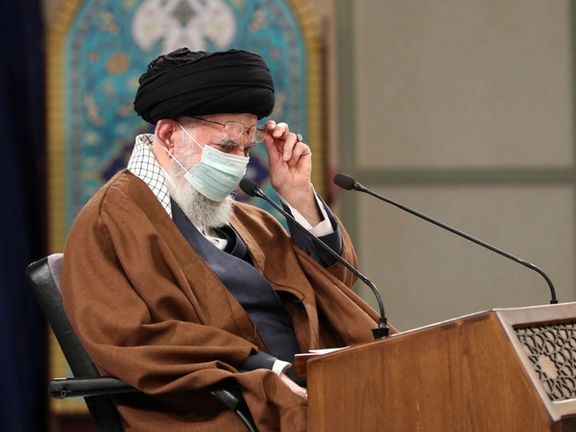
A group of seminary students and teachers have said that Supreme Leader Ali Khamenei's ‘Guardianship’ is no longer valid considering the numerous atrocities and crimes committed under his rule.
According to a statement released to media on Friday, by some members of seminaries in Qom, Mashhad and Tehran, Khamenei is not considered a ‘mujtahid’, using an Islamic legal term which means he does not have the required expertise in the Arabic language, theology, revealed texts, and principles of Sharia jurisprudence. They added that he cannot be a "source of emulation" or "religious reference".
"As people who have spent their lives studying religion, we firmly and with full knowledge state that in this so-called Islamic government, none of the influential officials and authorities are mujtahids,” read the statement, which bears no name of signatories.
Using Islamic or jurisprudential argumentation, they said his rule is illegitimate due to his numerous documented crimes and faults.
They added that a letter was sent to the seminaries by the office of Khamenei in the city of Qom, led by his son Mojtaba, warning the senior clerics not to express support for the ongoing protests.
There are reports that Khamenei has also forced the seminaries to give his son, reportedly being groomed to succeed his father as Supreme Leader,the title of “Ayatollah,” an honorific title for high-ranking Shia clergy.
In a speech to military commanders on September 21, Khamenei did not mention ongoing proteststhat can pose a serious challenge to his rule.
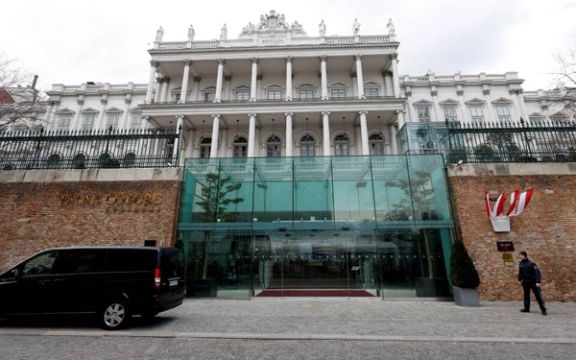
United States negotiations over reviving the 2015 Iran nuclear deal are at an end, the pro-conservative Washington Free Beacon reported Wednesday.
The Beacon said this was concluded by senior US officials in a classified briefing two weeks ago to members of the House of Representatives Foreign Affairs Committee. The outlet cited Darrell Issa, a Republican house member, and “other congressional sources familiar with the briefing.”
Issa, a supporter of former president Donald Trump, said they “are stymied over how they get to a deal because they’ve negotiated all there was to negotiate.” Issa said Iran was “basically on the eve of getting a nuclear weapon and don’t want to be talked out of it.”
Since the confidential House briefing September 14, US officials have publicly stressed their support for continuing efforts to revive the 2015 agreement, the JCPOA (Joint Comprehensive Plan of Action), which limited Iran’s nuclear program and eased international sanctions.
A State Department official told journalists September 22 that talks had “hit a wall.” Ned Price, State Department spokesman, defended the JCPOA Monday by arguing US withdrawal had increased Iran’s “actions against our partners, the potential targeting even of American facilities and personnel…[making Iran] more aggressive, and … deadlier.”
Iran Foreign Minister Hossein Amir-Abdollahian restated Wednesday that Iran wanted US ‘guarantees’ of economic cushions should the US leave a revived JCPOA, as it did during Trump’s presidency in 2018 when imposing ‘maximum pressure’ sanctions.
Several US senators told Iran International that Washington should stop talks with the Islamic Republic over revival of the 2015 nuclear deal, especially considering the ongoing popular protests.
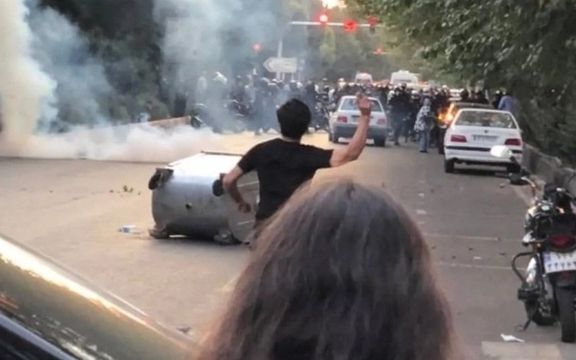
Iran's state television has opened its doors to some reformists who are allowed to make hygienic comments about the uprising by the country's youth and women.
But the tightly controlled broadcaster always juxtaposes the reformists with staunch hard-liners who offer counterarguments to the reformists' shy statements about why the system needs to open up to survive.
Even some of the reformists who have taken part in the debates on the Iranian state TV, have said in interviews with relatively independent media outlets in Iran that the state TV's openness is questionable.
Sadeq Zibacalam a usual suspect on Iranian media and foreign-based televisions to comment on almost everything during the past 30 years, has said in an interview with Didban Iran website that "state TV officials' behavior is authoritarian. Like all authoritarian regimes, the state TV also never acknowledges that there might be flaws and weaknesses in the system."
He added that "the grudge and hatred that has been accumulated in the Iranian society over the years is [partly] due to ignoring these weaknesses." He added that the state TV which operates under Supreme Leader Ali Khamenei "has never had a realistic approach to ongoing developments during the past 43 years."
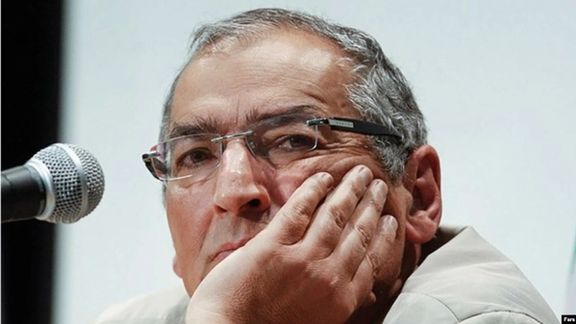
Accordiong to Didban Iran, many observers have been recently criticizing the state TV “which is no longer the point of reference for news and information for the people of Iran." In fact, government media has long ceased to be credible and instead people rely on Persian-speaking broadcasters, such as Iran International and Manoto TV for news and views.
"Just like the government, the state TV attributes the protests to US conspiracies and the actions of Zionists, monarchists and rioters," said Zibakalam, adding that the state TV is part of the Iranian government. It is no surprise as the chairman of the television, Payman Jebelli has reiterated time and again that it is the government's not the people's media. He further added that the state TV does not have any plan to help the regime get out of the current crisis.
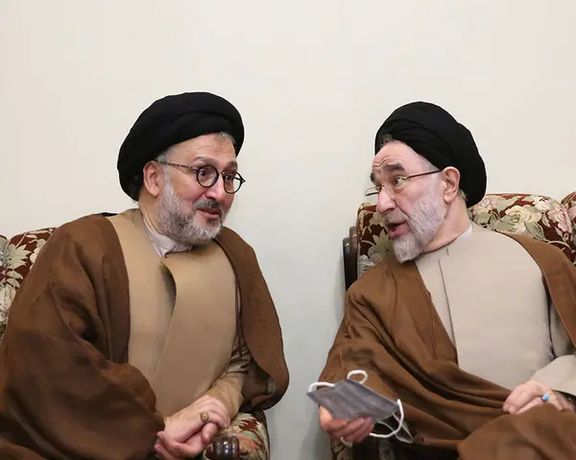
Meanwhile, Mohammad Ali Abtahi, a cleric who was former President Mohammad Khatami's chief of staff in late 1990s and early 2000s, said in an interview with Didban Iran that "the state TV's new approach of openness is temporary." He added that some ruling hard-liners say that putting one step back from their uncompromising positions might lead to a domino-like collapse of the system.
Abtahai, who was the head of the Iranian radio in the late 1980s and early 1990s, said, "I believe the open debates that are currently taking place on the state TV might not continue."
Some in the Iranian government believe that hard-liners should not put even one step back from their positions as a result of the protests that followed Mahsa Amini's death in custody, Abtahi argued. This school of thought does not tolerate dialogue, he added. "The other school of thought is reformism. Those who believe in this maintain thatwrong approaches could be corrected in a step-by-step approach," he said. However, he added that social pressure can force hard-liner officials to make compromises about some of their "principles".
However, critics of reformists say that more than two decades of a step-by-step approach has made matters worse and hard-liners more dominant in the government.
Two days after comedian Mehran Modiri belatedly expressed support for the protests, the state TV announced that it has cancelled his talk show, in a sign of intolerance.